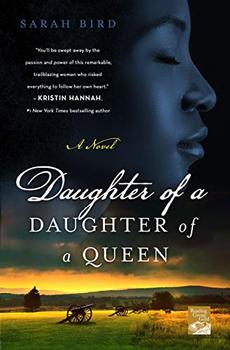Summary | Excerpt | Reading Guide | Reviews | Beyond the book | Read-Alikes | Genres & Themes | Author Bio

A brilliant debut novel that captures the end of an era, the vast madness of war, and the courage of a remarkable woman to claim life from the grasp of death itself.
In 1894 Carrie McGavock is an old woman who has only her former slave to keep
her company…and the almost 1,500 soldiers buried in her backyard. Years
before, rather than let someone plow over the field where these young men had
been buried, Carrie dug them up and reburied them in her own personal cemetery.
Now, as she walks the rows of the dead, an old soldier appears. It is the man
she met on the day of the battle that changed everything. The man who came to
her house as a wounded soldier and left with her heart. He asks if the cemetery
has room for one more.
In an extraordinary debut novel, based on a remarkable true story, Robert
Hicks draws an unforgettable, panoramic portrait of a woman who, through love
and loss, found a cause. Known throughout the country as "the Widow of the
South," Carrie McGavock gave her heart first to a stranger, then to a tract
of hallowed ground - and became a symbol of a nation's soul.
The novel flashes back thirty years to the afternoon of the Battle of
Franklin, five of the bloodiest hours of the Civil War. There were 9,200
casualties that fateful day. Carrie's home - the Carnton plantation - was taken over
by the Confederate army and turned into a hospital; four generals lay dead on
her back porch; the pile of amputated limbs rose as tall as the smoke house. And
when a wounded soldier named Zachariah Cashwell arrived and awakened feelings
she had thought long dead, Carrie found herself inexplicably drawn to him
despite the boundaries of class and decorum. The story that ensues between
Carrie and Cashwell is just as unforgettable as the battle from which it is
drawn.
The Widow of The South is a brilliant novel that captures the end of an era,
the vast madness of war, and the courage of a remarkable woman to claim life
from the grasp of death itself.
Also available as a Time Warner Audiobook, in a Large Print Edition and as an
eBook.
Hicks' first novel blends historical fact with fiction.
The story centers on Carrie McGavock, known as 'the widow of the south' - a
Confederate woman whose house was commandeered as a field hospital following the
Battle of Franklin (fought in November 1864 close to Nashville, Tennessee) -
one of the bloodiest battles of the war with 9,200 casualties, mostly
Confederate soldiers. The novel opens 30 years after the battle and then
flashes back to the day of the battle - a day when four generals lay dead on
Carrie's back porch, the pile of amputated limbs rose as tall as the smoke
house, and a wounded soldier named Zachariah Cashwell arrived who would shake
Carrie out of her stupor allowing her to find new purpose in her life.
The story is told from alternating points of view, including Mariah, Carrie's
slave-turned friend; Carrie's husband, who returns to his plantation after the
war; various soldiers from both sides; Carrie's neighbors; and Confederate general, Nathan Forrest. This
allows Hicks to write about the small human stories from various points of view,
as well as the epic catastrophe of the Civil War itself.
..continued
Full Review
 (239 words)
(239 words)
(Reviewed by BookBrowse Review Team).
Robert Hicks was born and raised in South Florida. In 1974 he moved to Tennessee where he now lives in an eighteenth-century log cabin near Leiper's Fork. His day job is music publishing and artist management but his passion is collecting - including 18th century maps of Tennessee, Tennesseana in general and Southern decorative arts. He was the driving force behind, and co-curator of, the Art of Tennessee exhibition in Nashville which opened in September 2003 and has served on the boards ...

If you liked The Widow of The South, try these:

Daughter of a Daughter of a Queen
by Sarah Bird
Published 2020
The compelling, hidden story of Cathy Williams, a former slave and the only woman to ever serve with the legendary Buffalo Soldiers.

by Louisa Thomas
Published 2017
An intimate portrait of Louisa Catherine Adams, the wife of John Quincy Adams, who witnessed firsthand the greatest transformations of her time.